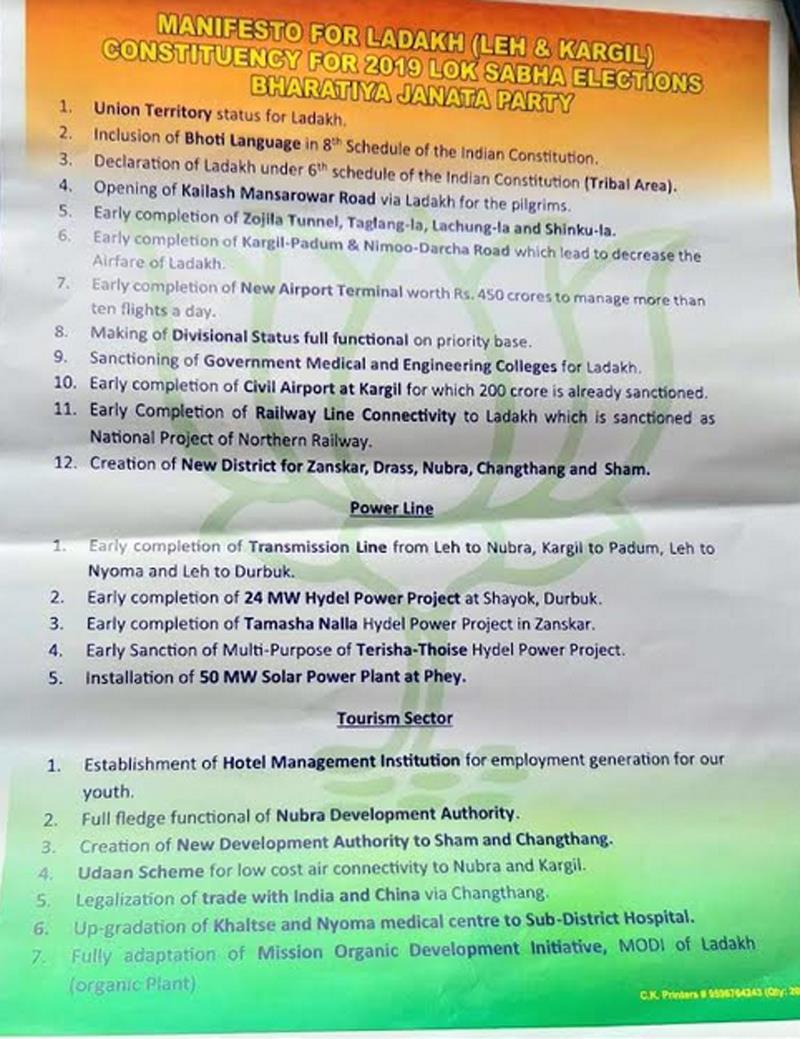It’s 15 days since Sonam Wangchuk, an Indian engineer, innovator, and education reformist has been on a hunger fast. The noted climate activist Sonam Wangchuk continued to press for his demand for constitutional safeguards for the Union Territory of Ladakh, and protection of ecologically fragile Ladakh’s ecosystem from industrial and mining lobbies.

Source: NDTV
Full Story:
“250 people slept hungry at -12 °C to remind the Indian Government of their promises to safeguard Ladakh’s environment and its tribal indigenous culture. This Government likes to call India the ‘Mother of Democracy’. But if India denies democratic rights to people of Ladakh, then it could only be called a Stepmother of Democracy,” Wangchuk, Ladakh-based engineer and educator, wrote in his latest post on X on Monday, while thanking those who participated in the previous day’s protest against Ladakh’s climate crisis.

Source: CivilsDaily
Speaking from Leh earlier this month, he underlined two appeals in his address ahead of the protest: an appeal to all people to lead simpler lives, and a direct appeal to the government to fulfill its promise to include Ladakh in the Sixth Schedule of the Constitution and give statehood for the region.
“After many meetings, the government has backtracked on its promises and is talking of a much-diluted version of what is already in the Constitution for this exact situation. So what happened and why did they change their mind?” Wangchuk said, pointing out that the Bharatiya Janata Party-led Central government had mentioned the protection of Ladakh under the Sixth Schedule in their manifestos for the 2019 Lok Sabha elections and 2020 Ladakh Hill Council polls.
While the reason behind the government’s U-turn is speculative, Wangchuk said his goal was to make the voices of Ladakhi people heard “so that the pressure of the industrial and mining lobbies is neutralized and the government can take a fair decision.”
The activist expressed environmental concerns surrounding the Himalayas and said industries have been exploiting the mountains by setting up dams and mining. “We believe we are helping the government, so we appeal to you to form Ladakh support groups in your own cities to support nature, support the Himalayas, and support the indigenous people of Ladakh,” he said.
The fast will unfold in phases, the educator said, adding that each phase will have 21 days.
“Twenty-one days – because this is the longest fast that Mahatma Gandhi kept during the Independence struggle, and I want to follow the Mahatma’s path where we inflict pain on ourselves so our government and policymakers notice our pain and act in time,” the activist said in his March 6 address.

Source: The News Now
Wangchuk’s attempts to get the attention of the government and the media have not been fully successful yet, but he is determined and so are the people who believe that Ladakh deserves protection from mining industries and corporations as well as China. It’s for time to tell if the central government will listen to what Mr. Wangchuk has to say or they don’t.
Read Also:
HOW IS LADAKH DOING ONE YEAR AFTER THE ABROGATION OF ARTICLE 370



















































































